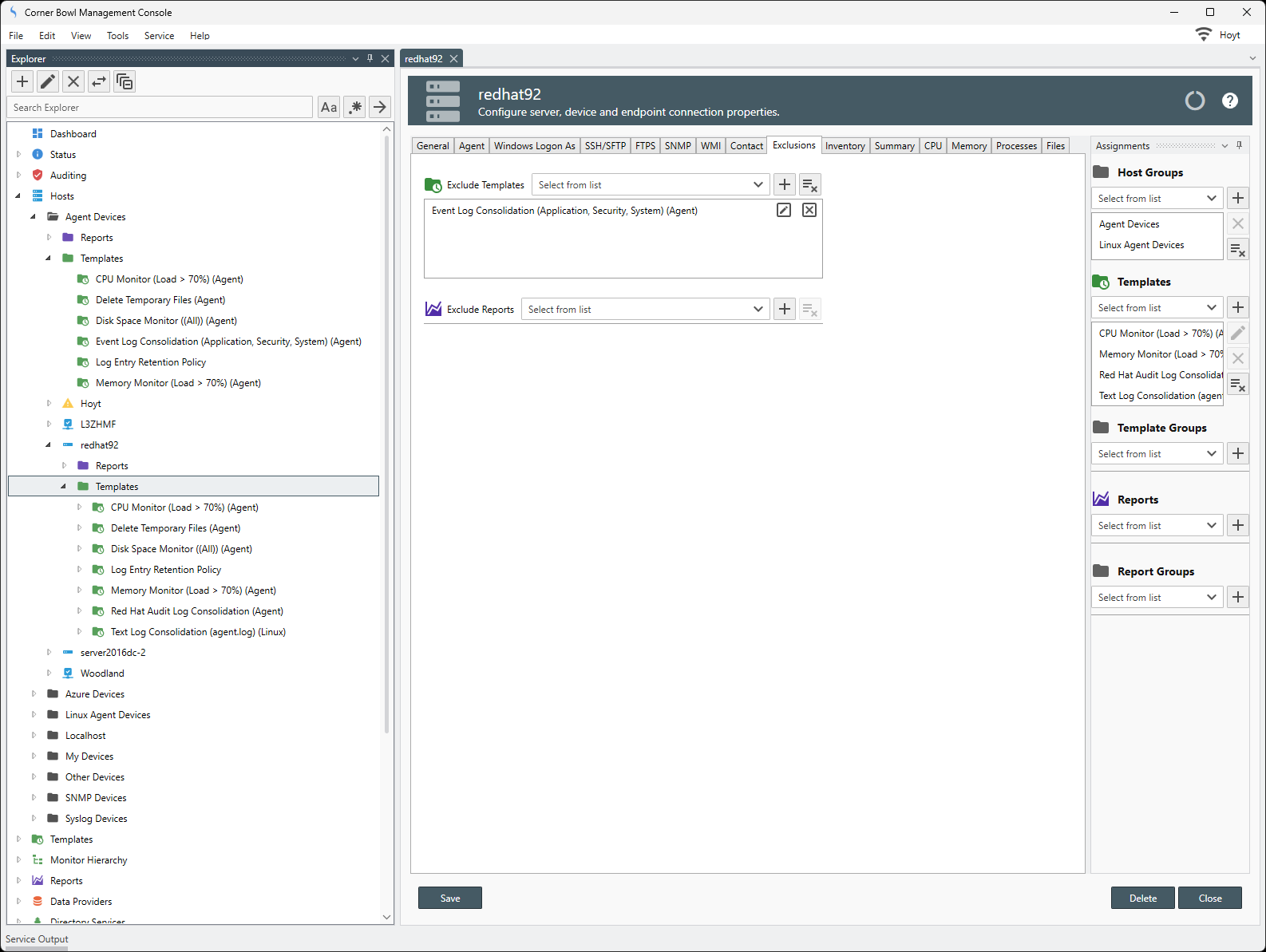Table of Contents
- Getting Started
- Agent-Based Management
- Common Tasks
- Data Providers
- Directory Services
- Auditing
- Hosts
- Templates
- Template Properties
- Batch Update Templates
- Assign Templates
- Log Management Templates
- SCAP Compliance Monitor
- Active Directory User Monitor Templates
- File and Directory Monitor Templates
- Windows Monitor Templates
- CPU Monitor Template
- Memory Monitor Template
- Disk Space Monitor Template
- Account Lockout Monitor Template
- Audit Policy Monitor Template
- Logon As Monitor Template
- Logon Monitor Template
- Performance Counter Monitor Template
- PowerShell Template
- Process Monitor Template
- RDP Session Monitor Template
- Registry Value Monitor Template
- Service Monitor Template
- SMART Disk Monitor Template
- System Security Monitor Template
- Windows Update Template
- WMI Query Template
- Task Scheduler Template
- Clock Synchronization Template
- Defragment NTFS Disks Template
- Network and Application Monitor Templates
- SSL Certificate Monitor Templates
- Database Templates
- Email Monitor Templates
- SNMP Monitor Templates
- Windows Accounts Templates
- Monitors
- Reports
- Auto-Configurators
- Filters
- Actions
- Schedules
- Environment Variables
- Options
- SNMP
- SSH Shell
- Syslog
- System Reset
- Shared Views
- Active Directory User and Group Filters
- Assign Actions
- Assign Azure Audit Logs
- Assign Consolidated Logs
- Assign Directories
- Assign Disks
- Assign Event Logs
- Assign Files
- Assign Services
- Assign Shares
- Auto-Config Host Assignment Properties
- Define CSV and W3C Log Entry Columns
- Define Log Entry Columns
- Define Log Entry Columns with Regular Expressions
- Executable Status
- Executable Timeline
- Explicitly Assigned Logs
- File Explorer
- General Executable Properties
- Report Columns
- Report Date/Time Ranges
- Report Security Event Log Filters
- Select Folder or File
- Target Files and Sub-Directories
- Command Line Interface
- Server Configuration
- Agent Configuration
- Troubleshooting
- Best Practices
- Terminology
Host Template and Report Exclusions Properties
Corner Bowl Server Manager enables you to override inheritance and exclude specific Templates and Reports from hosts.
In this Topic
Overview
When you implement inheritance, for example, you assign an Event Log Consolidation Template to the Agent Devices Host Group, and one of the hosts listed under the host group, either does not require the Template or requires a Template that has been configured differently than the Template you have assigned to the host group, you can explicitly add Templates and Reports to an exclusion list.
For example, if you have a Host Group called Servers and you assign 3 Windows domain controllers, a Linux email server and an Event Log Consolidation Template to the Host Group, use the Exclude Templates option to exclude the Event Log Consolidation Template from the Linux server. Once excluded the Event Log Consolidation Template not be scheduled to run against the Linux server and will not display as an assigned template in the Explorer view under the Linux server.
To Exclude Specific Templates from a Host
- From the Explorer View, locate the host you would like to exclude Templates from, right click, then select Host Properties. The Host Properties View displays.
- Select the Exclusions Tab.
- Use the Exclude Templates drop-down to select each Template to exclude.
To Exclude Specific Reports from a Host
- From the Explorer View, locate the host you would like to exclude Reports from, right click, then select Host Properties. The Host Properties View displays.
- Select the Exclusions Tab.
- Use the Exclude Reports drop-down to select each Report to exclude.
